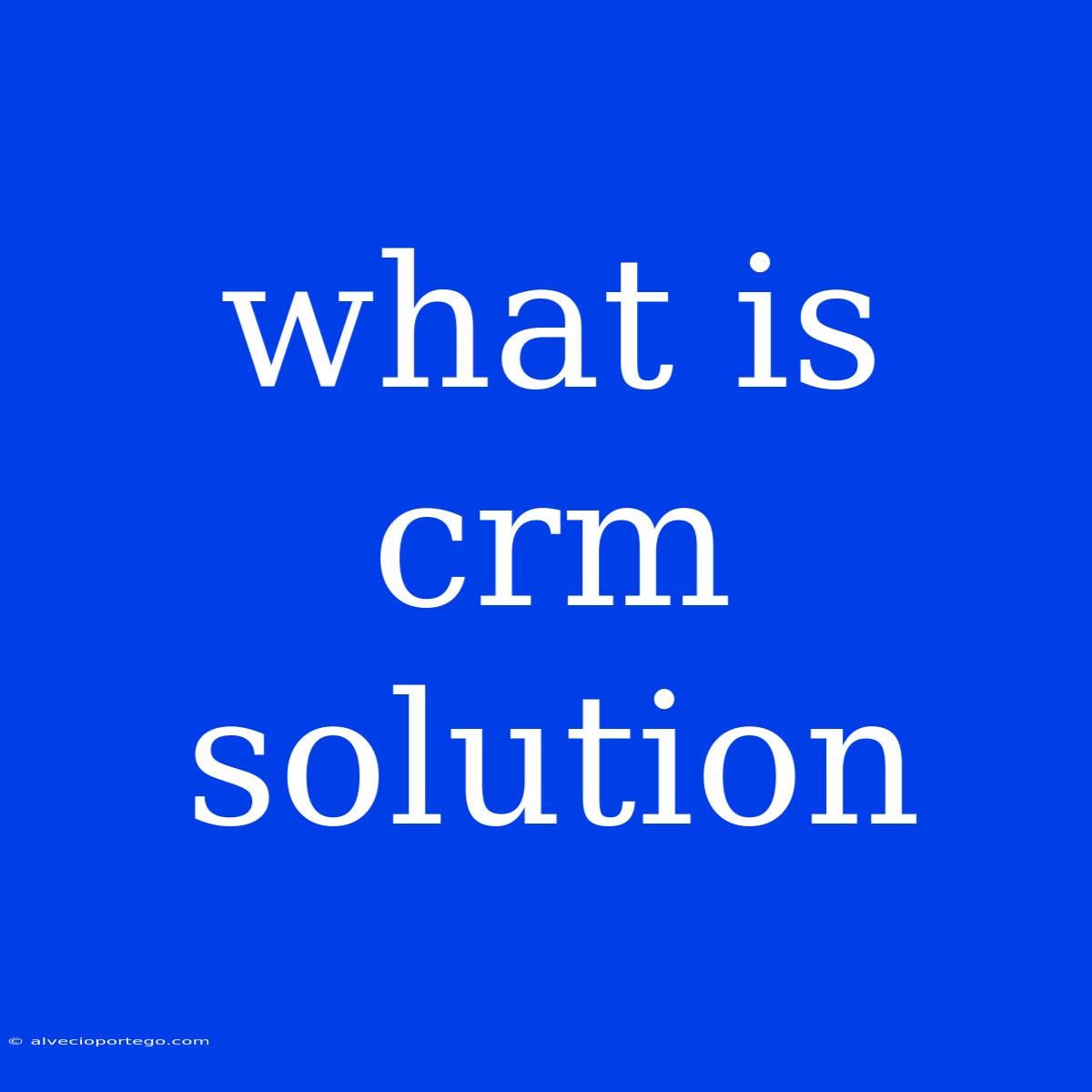What is a CRM Solution?
A CRM (Customer Relationship Management) solution is a software system designed to help businesses manage and improve their interactions with customers. It consolidates customer information from multiple sources, automates tasks, and provides tools for tracking interactions and analyzing data. This allows businesses to better understand their customers, personalize their interactions, and ultimately increase customer satisfaction and loyalty.
Key Features of a CRM Solution:
1. Customer Data Management:
- Centralized Database: CRMs store all customer information in one place, making it accessible to everyone in the organization.
- Comprehensive Customer Profiles: They capture detailed information about customers, including contact details, purchase history, preferences, and engagement history.
- Data Integration: CRMs integrate with other business systems, like marketing automation tools and e-commerce platforms, to create a holistic view of the customer.
2. Sales Automation:
- Lead Management: CRMs help track and manage leads, qualify them, and assign them to sales representatives.
- Opportunity Tracking: They allow sales teams to track the progress of deals, forecast sales, and identify opportunities.
- Sales Process Automation: CRMs automate repetitive tasks, such as sending follow-up emails, scheduling meetings, and generating proposals.
3. Marketing Automation:
- Targeted Campaigns: CRMs enable businesses to segment customers and send personalized marketing messages based on their preferences and behavior.
- Email Marketing: They offer features for creating and sending email campaigns, tracking open and click rates, and managing subscriptions.
- Social Media Integration: CRMs can connect with social media platforms to track customer conversations and engage with them directly.
4. Customer Service:
- Ticketing System: CRMs provide a centralized platform for managing customer support requests, allowing businesses to track issues, prioritize them, and resolve them efficiently.
- Knowledge Base: They offer a repository of frequently asked questions (FAQs), articles, and other helpful resources to assist customers.
- Live Chat: CRMs can integrate with live chat tools, enabling businesses to offer real-time support and answer customer questions immediately.
5. Reporting and Analytics:
- Data Visualization: CRMs provide dashboards and reports that visualize key performance indicators (KPIs), allowing businesses to track their progress and identify areas for improvement.
- Customer Insights: They generate insights about customer behavior, preferences, and pain points, enabling businesses to make data-driven decisions.
- Predictive Analytics: Advanced CRMs use predictive analytics to anticipate customer needs and proactively address potential issues.
Benefits of Implementing a CRM Solution:
- Improved Customer Satisfaction: By providing personalized interactions and efficient service, businesses can increase customer satisfaction and loyalty.
- Increased Sales: CRMs help businesses better understand their customers, identify opportunities, and close deals more effectively.
- Enhanced Marketing Effectiveness: By segmenting customers and tailoring marketing messages, businesses can achieve higher conversion rates and ROI.
- Streamlined Operations: CRMs automate tasks and processes, freeing up employees to focus on more strategic activities.
- Data-Driven Decision Making: CRMs provide valuable insights into customer behavior, allowing businesses to make informed decisions about their products, services, and marketing strategies.
Choosing the Right CRM Solution:
The best CRM solution for a business depends on its specific needs and budget. Factors to consider include:
- Industry: Different CRMs are tailored to specific industries, such as healthcare, retail, or finance.
- Size of the business: Small businesses may need a simple and affordable CRM, while larger businesses may require a more complex and feature-rich solution.
- Budget: CRMs come at a variety of price points, so it's important to choose one that fits the business's budget.
- Features: Make sure the CRM offers the features you need, such as sales automation, marketing automation, customer service, and reporting.
- Integration: Consider the CRM's ability to integrate with other business systems.
By carefully considering these factors, businesses can choose the CRM solution that will best help them manage their customer relationships and achieve their business goals.

